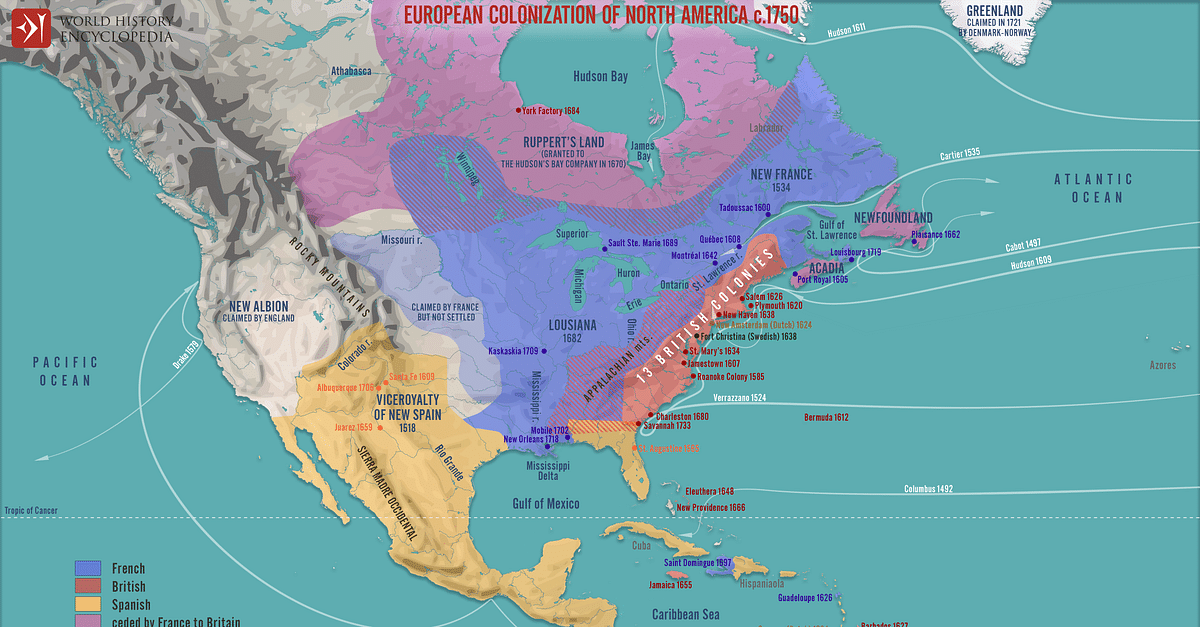
"The Thirteen Colonies were a cluster of British colonies located along the Atlantic seaboard of North America. Founded for a variety of reasons - economic, political, and religious - the colonies emerged with their own distinct governments, colonial charters, and cultures, but were bound together through their shared language, history, religion (Protestantism), and allegiance to the British Crown. During the American Revolution (1765-1789), these colonies banded together to cast off British rule and emerged as a new nation, the United States of America."
"Traditionally, the Thirteen Colonies have been grouped into three categories, divided by geography as well as by culture. The New England Colonies, comprising the northeasternmost part of the map, were founded primarily by Puritans seeking religious freedom, and included the colonies of Massachusetts, New Hampshire, Rhode Island, and Connecticut. The Middle Colonies, including New York, New Jersey, Pennsylvania, and Delaware, were known for their diverse economies and equally diverse populations and were sometimes called the 'breadbasket colonies'."
The Thirteen Colonies formed a cluster of British settlements along North America's Atlantic seaboard, founded for economic, political, and religious reasons. Each colony maintained distinct governments, charters, and cultures while sharing language, Protestant religion, and allegiance to the British Crown. Colonies were grouped regionally: New England (Massachusetts, New Hampshire, Rhode Island, Connecticut) founded largely by Puritans; the Middle Colonies (New York, New Jersey, Pennsylvania, Delaware) with diverse economies and populations; and the Southern Colonies (Maryland, Virginia, North Carolina, South Carolina, Georgia) centered on cash-crop agriculture. English colonization efforts intensified in the late 16th century, and the colonies united during the American Revolution to form the United States.
Read at World History Encyclopedia
Unable to calculate read time
Collection
[
|
...
]